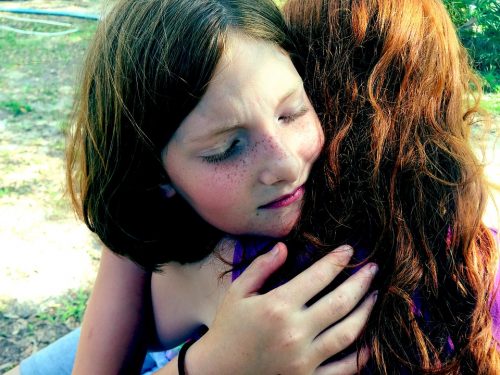
Quarrels and misunderstanding are inevitable in all relationships. Being tied to one another, seeing each other every day, experiencing stressors in life and with children, could further escalate instances of dispute within a union.
The Bad Side Of Conflict
Although it is normal between married couples to lose their cool at one another for whatever issues that may arise, they should remember that amid the bickering and yelling, some innocent eyes and ears witness and absorb every word and action spewed to each other.
Be wary that your children are sensitive when it comes to seeing their parents argue and the more they get exposed to these kinds of struggle within their homes, the more they become negatively affected.

How do marriage confrontations in front of children affect them?
- Development Of Mental Illnesses
Witnessing continuous discord accompanied by screaming and cursing can pose long-term destructive effects on your children’s mental health. Development of mental issues like depression, anxiety, low self-esteem and self-confidence, anger, fear, and even sleeping difficulties may occur. Marilyn Wedge Ph.D. says that “For years I’ve found in clinical experience that the number one cause of children’s psychological problems (apart from severe abuse and neglect) is parents having arguments in front of their kids.”
- Guilt Feeling
There are two ways that children can feel guilty when their parents fight: that they are the cause of why they argue all the time or which side they have to take. Both are incredibly traumatic and damaging to kids. The feeling of being at fault for the discord happening inside the house is a tragic realization that would be imprinted in the minds of your children. On the other hand, having the feeling of taking sides can be confusing and chaotic. Asking children to choose can result in more harmful results like parental alienation.
- Treacherous Terrain
Homes are supposed to be loving and comforting; this provides children a safe impression. However, due to constant quarrels, this safety feeling is threatened, and children now perceive their homes as a treacherous environment that is a source of stress and burden. “Research confirms what any child can tell you, which is that it’s frightening when adults yell at each other. After all, parents are the child’s source of security. When parents seem out of control, the world becomes a scary place.” explains Laura Markham Ph.D. Because children wanted to avoid witnessing their daily dose of parental dissonance, they would be involved with the bad company and will engage in illicit habits.
- Distrust With Parents
Children paint pictures of parents as role models or heroes. However, seeing their primary source of happiness and inspiration experience a tumultuous connection drastically changes children’s perception of who their parents are. This realization could lead to your children to creating a massive barrier because of fear and emotional suffering that could eventually cause distrust and dishonesty.
“The marriage that kids see at home gives them a lasting impression of how relationships are supposed to work. If your child sees you and your husband fighting on a regular basis, this will be the type of relationship that she will be unconsciously drawn to in the future.” emphasized Dr. Samantha Rodman, clinical psychologist and founder of DrPsychMom.com.

The Good Side Of Conflict
Conflicts create a more mature version of oneself which can also lead to garnering a certain degree of boldness and strength; this is true with marriages and especially with kids witnessing parental disharmony. Though it is already established that fighting in front of kids can result in adverse repercussions, there can be a positive side to it.
Research suggests that for as long as parental discord does not threaten children’s emotional security, settling disputes in front of kids is beneficial and becomes a learning process. This eventually helps kids grow up to become better observers, thinkers, and decision-makers. Responsible parenting calls for parents being assertive in clarifying what the argument is all about and showing their kids that, at the end of the day, problems can be resolved.
When parents who argue are aware on how to constructively present their issues with their children, when the reason behind the arguments are adequately explained, it would eventually lead to their kids figuring out a positive coping mechanism and would create a better understanding of the conflict. This would make children wiser and smarter when dealing with future disagreements not only inside the home but also when they grow up and start to mingle with other people and have their relationships.
